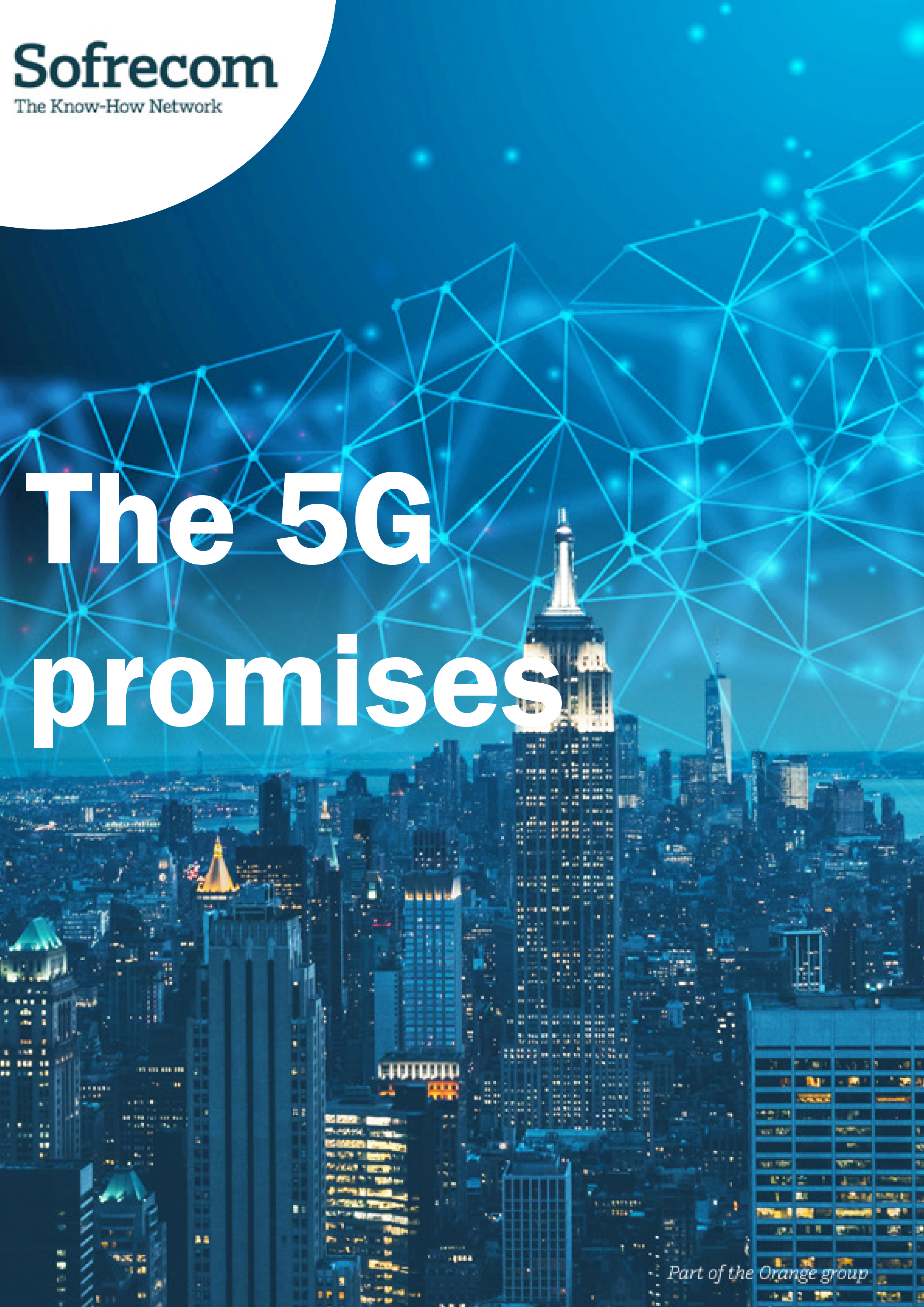
With 5G, companies could become operators not to sell telephony or internet access, but to inject connectivity into their services. But the feasibility of these strategies remains uncertain.
Alexande Jolin

Initially but an improved version of the 4G network, 5G will offer speeds comparable to fiber from as early as 2021. Its usages will revolutionize the lives of businesses and communities. Then, the transformation of the network core will enter its final stage. Without threatening wholesale operators’ stock in trade, these technological developments give them the opportunity to develop new offers integrating IT services. It is up to them to quickly take position on this growth driver that will also be of interest to other players in the ecosystem.
Business as usual until 2021
At the start, 5G will enable a significant increase in throughput. This will stimulate new uses and bring in some additional comforts to mobile users.
During this first stage, the wholesale operators’ core activity, being value-creating, will remain unchanged. They will continue to lease parts of their 5G network and sell 5G connectivity offerings to their customers. These players – national and international operators, virtual operators (MVNO), companies, local authorities, content aggregators, IT services and Cloud solution providers – will then be able to design and market more qualitative mobile offers for their individual and corporate end-customers.
Technological disruption will play out via small cells and network virtualization
The first turning point will come when the millimeter wave frequencies (in 26 GHz) have been assigned. These frequencies offer speed comparable to that of FTTH, but of low range. They will change the configuration of the current infrastructure as they will require very finely-meshed coverage of the territory by miniaturized smart antennas (small cells).
The transformation of the network core by 2022-2023 will mark the final stage in the roll-out of 5G. Network virtualization will open up access to “Network Slicing”. Operators will be able to divide their infrastructure into virtual network slices and provide each customer with a turnkey network tailored, via Cloud properties, to its specific capacity, latency and reliability needs.
A new level of intensity in competition: new players will become operators
With 5G, companies could become operators not to sell telephony or Internet access, but to inject connectivity into their services. However, the feasibility of such strategies remains uncertain. Let’s look at some examples:
- An electricity supplier could operate its own meter reading network. It would turn to a wholesaler to rent 5G connectivity tailored to its needs, which would eventually become a slice of the network.
- A local authority could decide to operate 5G services in the zone of economic interest it has just created. Will it be able to acquire a local operator license that does not currently exist?
- Experiments to deploy small cells already widely integrated into the urban landscape are not carried out by telcos, but by equipment manufacturers. Who will operate this network? Equipment manufacturers? An operator that does not own the infrastructure?
- Currently, connected car companies rely on MVNOs that are more or less affiliated with large automotive groups. Will they become operators tomorrow?
Many questions, therefore, remain unanswered, in particular:
- the regulatory procedures,
- and the potential revenue to be expected from these new 5G uses.
The emergence of a new market segment for wholesalers
Nevertheless, two trends are emerging:
- a growing need, on the part of businesses, for cloud-based services, edge computing, CDNs, and platforms;
- an expectation of strong integration between connectivity and IT services to ensure end-to-end performance in their industrial facilities.
The risk for wholesale operators is that Cloud players, connectivity aggregators, IT providers, and OTTs will invest in 5G services. Intermediation already in progress could become more pronounced. 5G wholesale services will certainly bring growth. It is, however, difficult to estimate the potential for value on this emerging market today. This is a great opportunity for wholesalers to revise their business model and come up with a new end-to-end 5G wholesale offering integrating infrastructure, connectivity, and services!
With the deployment of 5G, wholesale operators will continue to create most of their value through the provision of infrastructure and connectivity. However, these core business activities offer few development opportunities. Their challenge will lie in seeking a new growth driver in services, by offering their customers wholesale solutions from start to finish. It is up to them to capitalize on their advantage as wholesale connectivity provider to bring the synergy of their offers to the entire value chain.





